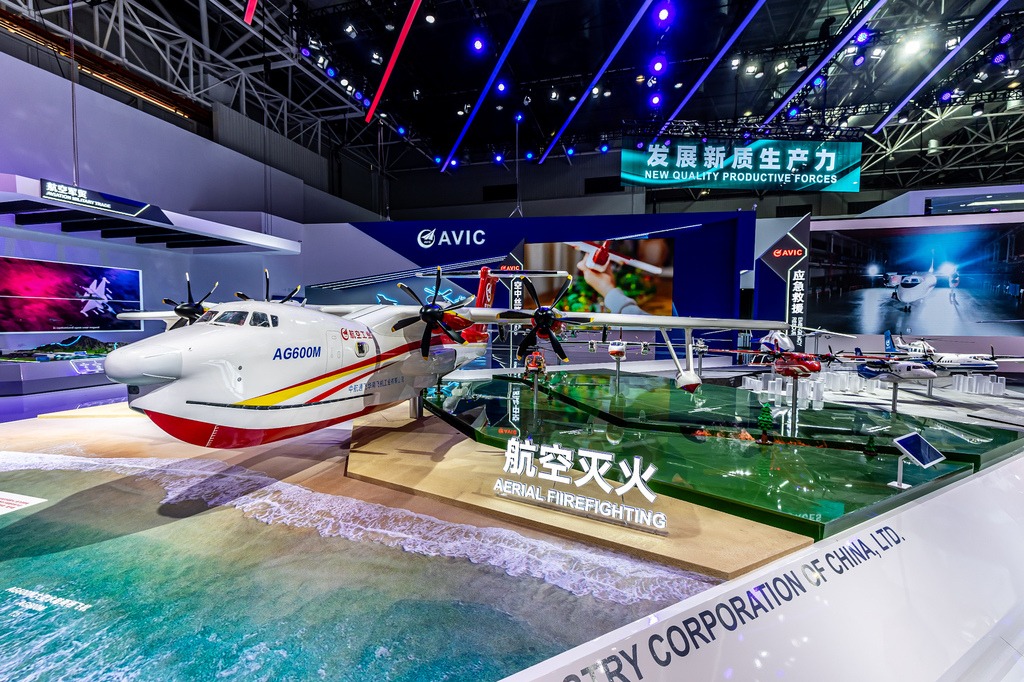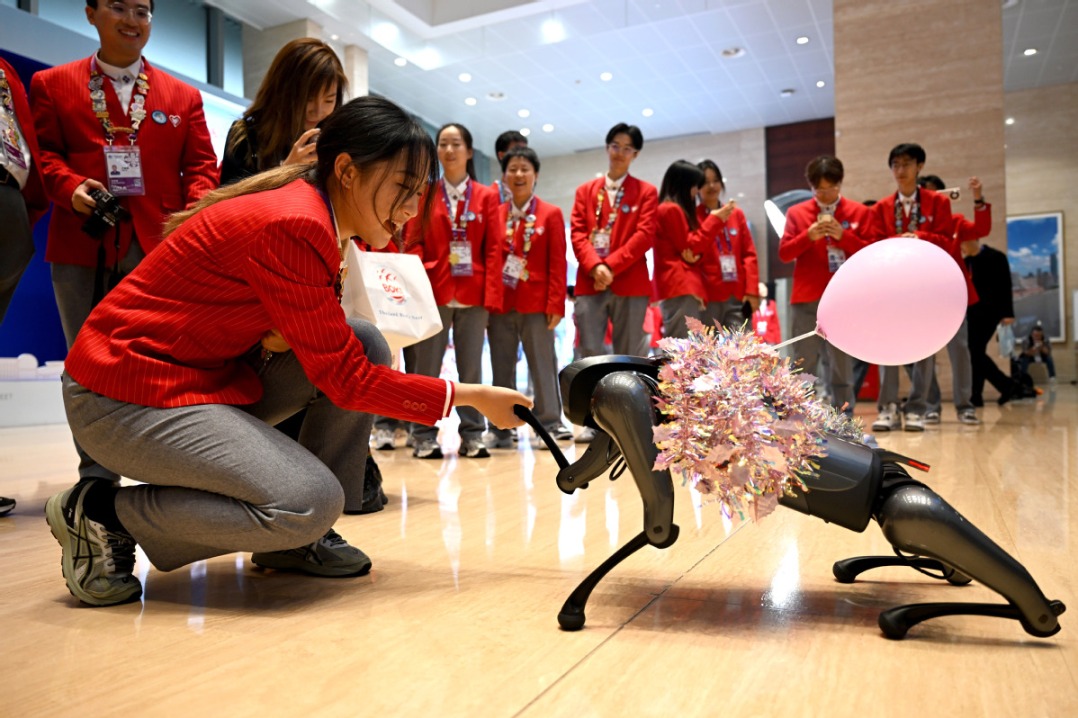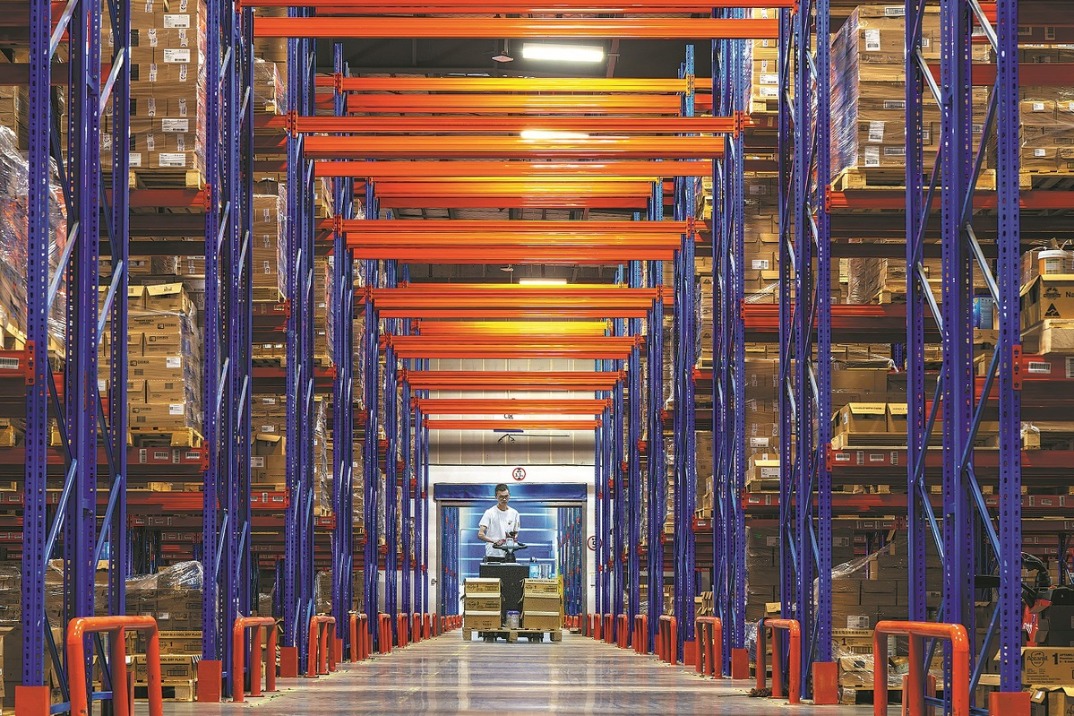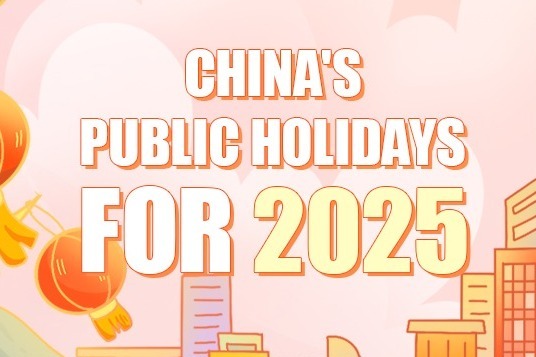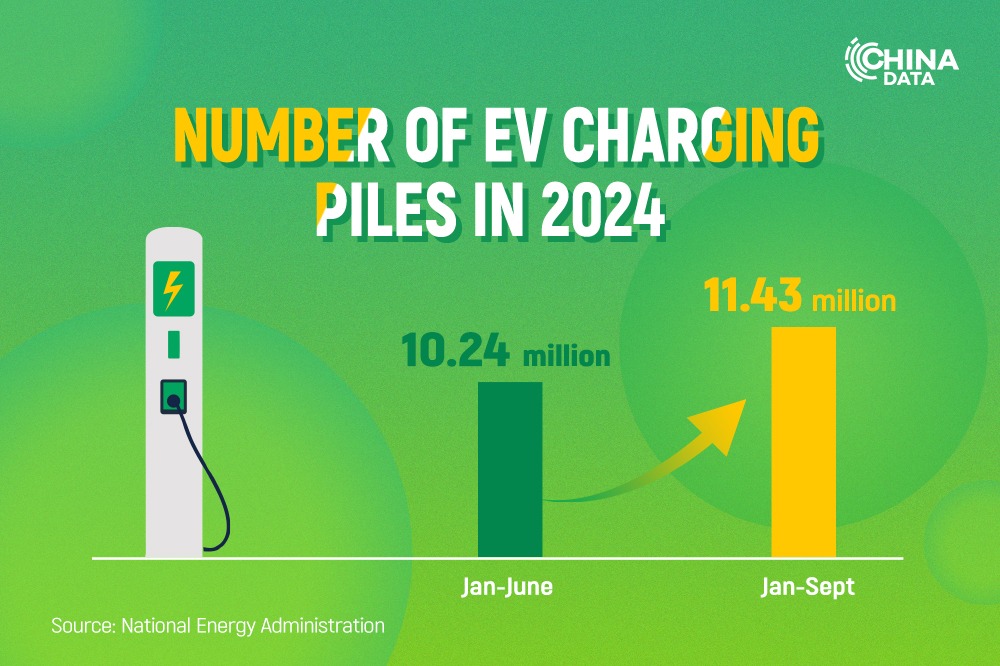Greener world calls for closer ties between China, EU

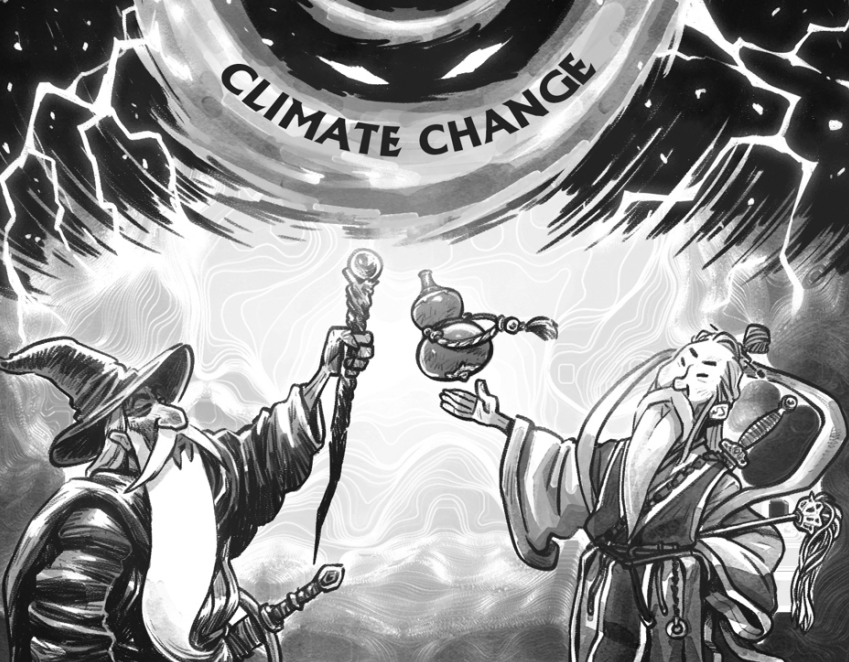
The recent visit of French President Emmanuel Macron and European Commission President Ursula von der Leyen to China is bringing many opportunities for Sino-EU bilateral relations. A 60-member business delegation also came along with the top leaders, including leaders of many world-renowned French/European companies such as Airbus, Louis Vuitton and EDF, showing the good wishes of the French political and business fields for repairing and developing bilateral economic and trade relations.
Against the current global backdrop, such efforts from the EU are notable. In addition to economic and trade exchanges and geopolitical issues, another goal of Macron's visit is to recommit to a common framework of action on major international issues such as the fight against climate change and the protection of biodiversity. Indeed, as the global climate crisis spirals out of control, consolidating and developing bilateral cooperation on climate action is equally urgent, not to mention that future prospects of climate cooperation between the two sides shine brighter globally thanks to the good foundation of previous cooperation and the consensus on the implementation of the Paris Agreement.
Tie key to climate change
Sino-EU cooperation in addressing climate change has always been a model for the international community. Apart from a comprehensive strategic partnership in 2003, the two sides in 2005 made it a norm for high-level dialogues and multilevel cooperation to this end by inking the Partnership on Climate Change, with the cooperation scope expanding to carbon sequestration, greenhouse gas emissions, low-carbon economic transformation and other fields.
A monumental achievement in global climate negotiations, the Paris Agreement is also a fruitful result of Sino-EU cooperation. In 2010, amid the failure to make substantial progress in the negotiations at the Copenhagen Conference of the Parties, China and the EU issued a joint statement establishing a "climate hotline" between leaderships to coordinate positions in multilateral climate negotiations and maintain closer communication on relevant policies and cooperation.
Before the launch of the UN Climate Change Conference in 2015, China and conference host France had actively engaged in dialogue on relevant preparatory work. At the same time, officials from China and the United States signed China-US joint statement on climate change. With such efforts from major emitters, the signing of the Paris Agreement was finally achieved.
In 2017, then-US president Donald Trump announced a withdrawal from the Paris Agreement. Though the current US administration rejoined the agreement in 2021, the US move in 2017 brought severe damage to the progress of the agreement. However, China and the EU were still working together to take global action on climate change further.
For example, after the US move in 2017, Macron made a special trip to China to reiterate the significance of the cooperation between China and the EU on climate issues. In 2018, the top leaderships of China and the EU signed a new cooperation agreement, reaffirming their willingness to cooperate to jointly promote global emission reductions and sustainable development.
China and the EU then successively proposed higher climate action targets. In 2019, the EU Green Deal was unveiled, in which the EU said it will reduce greenhouse gas emissions 55 percent by 2030 and achieve carbon neutrality by 2050. In September 2020, China announced its dual carbon goals. Such moves have had a ripple effect, pushing South Korea, Japan and other countries to raise their emission reduction targets.
In recent years, due to global woes such as the COVID-19 pandemic and the Russia-Ukraine conflict, the global economy has faltered amid recession and high inflation. There has also been rising unilateralism and a sentiment of anti-globalization, which profoundly affected geopolitical trends. Such a series of drastic changes have brought unprecedented challenges to China-EU relations. Facing such headwinds, the EU adjusted its relations with China, and deemed China "a partner for cooperation and negotiation, an economic competitor and a systemic rival", indicating that China-EU relations have stepped into a new period and the partnership on climate issues was no longer simple.
Green turf war
With the advances in green technology, the expansion in their scale of production and application, and the strong promotion by governments using taxes and subsidies, the economic growth model based on fossil fuel energy may usher in an inflection point in the near future, while emission reductions and green technology will become new driving forces for economic growth. The competition between the EU and China in green fields will become increasingly fierce.
At the beginning of this year, the US Inflation Reduction Act came into effect, kicking off a turf war in green business among major economies. The bill announced about $370 billion in climate and clean energy investments, including a number of subsidies and tax incentives for players operating in the US. Such large-scale support weighed on both China and the EU due to pressure from green investment and production outflows. The pressure on the EU is so pressing that the European Commission has even proposed the Net Zero Industry Act, a panicked response to restrict green imports and loosen regulations on state aid, which was deemed as a move contradicting free market rules, raising concerns within the EU that the move may distort the unified market.
The EU is also doing this to secure its supply chains. The global supply chain crisis caused by the pandemic and the energy crisis resulting from the Russia-Ukraine conflict have deepened concerns over relying on overseas supply chains. Thus, the EU began to reduce its dependence on imports from single countries amid its energy and sustainable transition moves.
The EU's current moves, as we see, are more like overreactions and are not constructive. As Macron said during his visit to China, the growing concerns have created an "inescapable spiral of mounting tensions", which is not conducive to resolving the issue. Eyeing a brighter future for China-EU climate cooperation, there are three keywords of great significance — competition, security and trust — in which security and trust are the prerequisites for building a healthy competitive relationship.
It is important to know that China and the EU will inevitably compete in key green market areas. But if the two sides can restore trust, follow international trade guidelines with the WTO as the core, and form a relationship of healthy competition and cooperation based on win-win thinking, healthy competition between the two sides will be extremely good news for the world and the climate struggle. It will also help promote the accelerated development of the world's sustainable economic transformation.
Strong complementarity
China and the EU have strong complementarity in developing the green economy. The EU has first-mover advantages in terms of technology and operating schemes, while China boasts advantages in market size and lower costs. Cooperation between the two sides can greatly promote the progress of green technology, stimulate the development of relevant markets and reduce the green premium, thereby accelerating the process of global climate action. Specifically, there are four key areas for cooperation in the future.
The first is to give play to the complementary advantages and promote the energy transformation of both sides. In the process of future energy transition and sustainable economic transformation, China and the EU have huge space for cooperation. Green hydrogen technology is a good example. The EU regards clean hydrogen energy as the core of Europe's future green economic competitiveness, and investment in green hydrogen technology research and development is ahead of its global peers. As Chinese manufacturers have strong low-cost advantages in the production of hydrogen energy equipment, the manufacturing costs of some key equipment are only 40 percent of that of EU companies. Therefore, consolidating and expanding cooperation in the field of energy will create huge economic and environmental benefits in the future.
This direction has been confirmed by the large energy deals inked between Chinese and French companies promoted by Macron's visit.
The second is to strengthen negotiations in the areas of carbon emissions trading and border regulation rules. China in 2021 launched its carbon trading market, which marks an important achievement of China-EU climate cooperation. The two sides have been working on building emissions trading platforms since 2014.Over the years, the EU has provided China plenty of policy advice and technical support for relevant designs and implementation through policy dialogue, training and information exchanges. However, China's carbon emissions market is still in its infancy. The EU remains an important role model and partner in this field for China. In addition, the EU's carbon border adjustment mechanism will be fully implemented from 2026, and China and the EU should actively work on carbon market connectivity and border regulation rules to lay the foundation for the formation of international carbon emissions trading and related rules.
The third is to jointly lead the circular economy transformation of the international community. China and the EU are dependent on each other in the development of the circular economy. In January 2018, China and other countries imposed restrictions on solid waste imports, which forced Europe to face the problem of domestic waste disposal and reform its consumption system, which partly promoted the release of the EU's circular economy action plan. The program makes future products entering Europe face higher sustainability standards. The program, in turn, will have a profound impact on the manufacturing of exports in China, promoting the improvement of China's circular economy standard legislation and management system. Taking this as an example, if China and the EU can actively engage in dialogue and coordinate policies and actions in the area of circular economy, they will play a leading international role in driving the global circular economy transformation.
Fourth, the two sides should work together to develop sustainable finance standards. To guide global investors to identify and access green investment opportunities, the EU launched the International Platform for Sustainable Finance in October 2019, with both China and the EU as founding members. At present, the cooperation platform has achieved many results, all of which have an impact on guiding global green investment. In the future, with the IPSF as a vital cooperative platform, China and the EU should continue to expand cooperation in the field of sustainable finance standards and transitional finance, and jointly promote the effective growth of sustainable financing globally.
In October, China and the EU will celebrate the 20th anniversary of their comprehensive strategic partnership. Despite the challenges and obstacles, the vision of China and the EU to promote global sustainable development is the same. Addressing climate change is a major issue related to the destiny of mankind, and China and the EU should further enhance mutual trust and cooperation, jointly become a leading force in international climate action and make positive contributions to the sustainable development of human society.
Zhao Xinge is executive deputy director of the Lujiazui International Institute of Finance, China Europe International Business School. Qiu Ju is a researcher at the institute.
The views don't necessarily reflect those of China Daily.
















